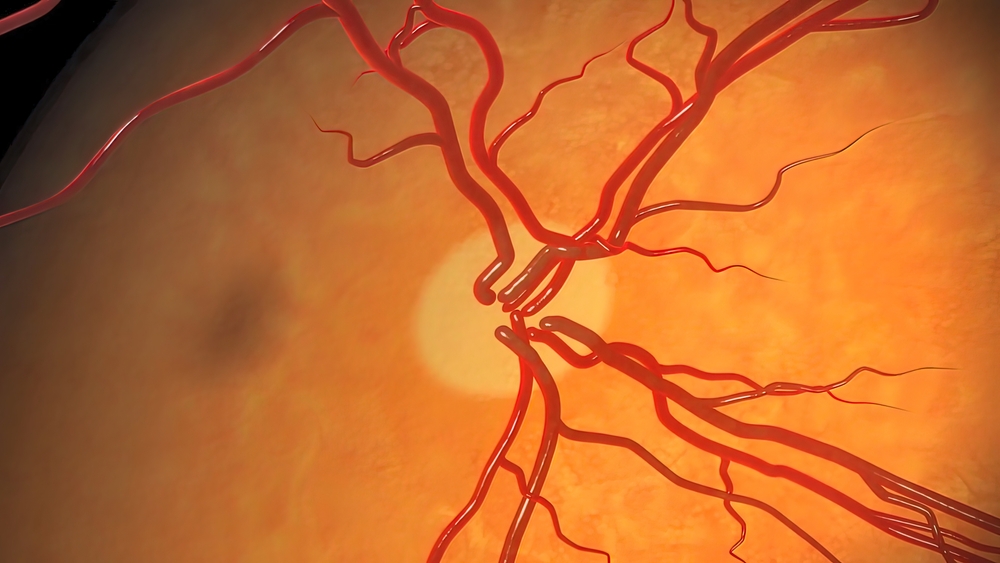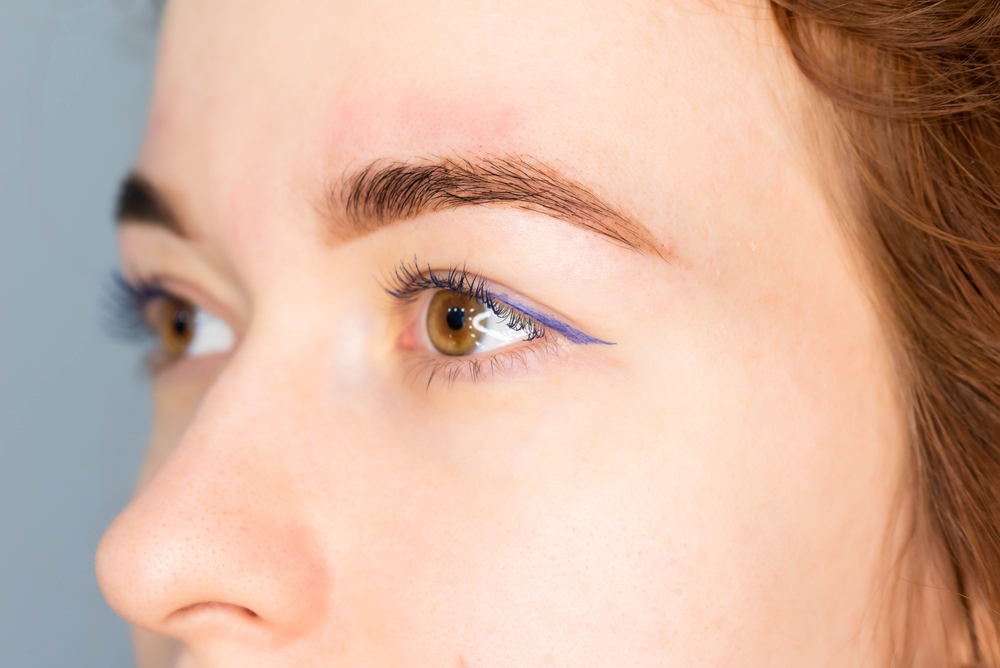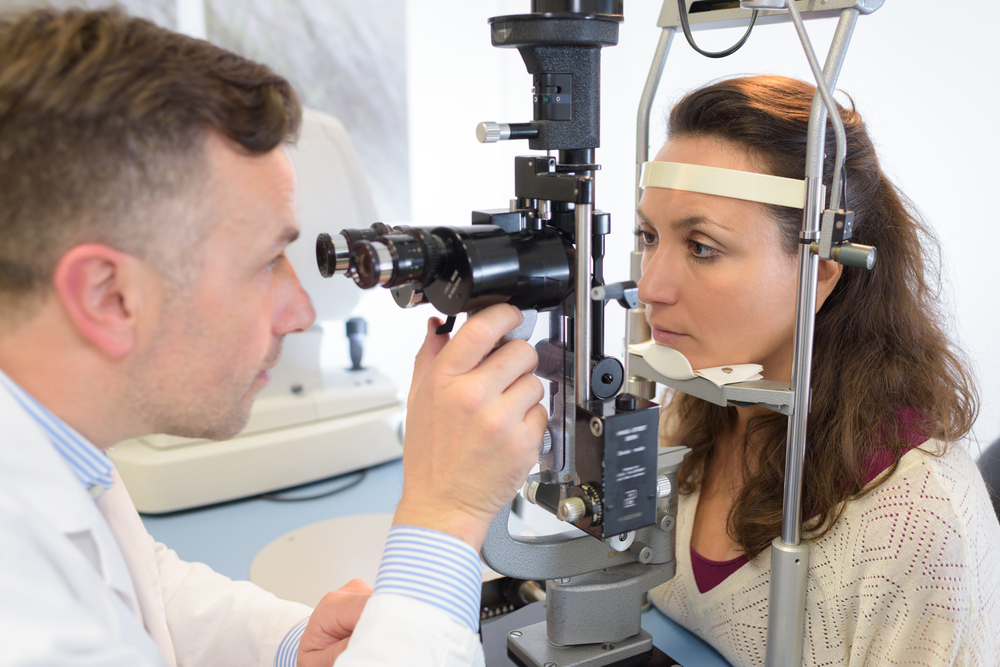

Optic nerve damage can cause irreversible vision loss. Whether partial or total, vision loss hinders our ability to complete daily tasks with ease. If you want to protect your vision, we strongly recommend scheduling an annual eye exam. Your eye doctor will check for signs of damage, among other conditions, to determine any necessary treatment plans.
Keep reading to learn about what causes optic nerve damage, what symptoms to look for, and how to treat it.
Table of Contents
What Is an Optic Nerve?
The optic nerve is a tube-like structure of about one million nerve fibers connecting the back of your eyeball to your brain. It can be stimulated by light and is responsible for transmitting images and light from the retina to the brain. As part of the body’s central nervous system, the optic nerve is essential for collecting and processing visual information.
Read More: Eye Anatomy: The 9 Main Parts of The Eye & How We See
What Causes Optic Nerve Damage?
When it comes to what causes optic nerve damage, there are two main categories: eye diseases, disorders and conditions, and eye injury or trauma.
Optic Nerve Eye Diseases, Disorders, & Conditions
Glaucoma
Glaucoma can result in high intraocular pressure, blocked blood flow to the eye, or a buildup of fluid in the eye.
Optic neuritis
This is a rare autoimmune disorder that causes optic nerve inflammation.
Optic nerve atrophy
This condition causes the optic nerve to shrink and lose its ability to transmit signals from the eye to the brain.
Optic nerve head drusen
A deposit of cholesterol and protein forms in the eye’s optic disc, where the optic nerve connects to the eye. This deposit can restrict blood flow to the optic nerve, causing blurred vision or vision loss.
Anterior ischemic optic neuropathy
The blood flow to the optic nerve is cut off completely, which can cause anything from swelling to inflammation to fluid buildup.
Optic nerve compression
Excess pressure is put on the optic nerve, which can cause blindness.
Eye infection
Bacterial and viral eye infections—such as Lyme disease, measles, and chickenpox—can spread to the optic nerve and cause irreversible damage. These infections can also cause inflammation and swelling that restricts blood flow to the optic nerve.
Eye cancer
Tumor cells release a chemical that kills cells in the optic nerve. Tumors can also press on the optic nerve, causing inflammation and swelling, or block the flow of blood to the optic nerve.
Optic Nerve Injury or Trauma
- Stroke: A stroke can interrupt the optic nerve’s blood supply and block the flow of oxygen and nutrients to it.
- Cerebral aneurysm: An aneurysm can leak or rupture unexpectedly, causing bleeding and swelling in the brain. Increased pressure due to the bleeding and swelling can damage blood vessels, including those supplying blood to the optic nerves.
- Blood clot: Blood clots block proper blood flow from the optic nerve to the brain.
- Diabetes: High glucose levels in the retina can damage the optic nerve.
- Graves’ Disease: An overactive thyroid gland characteristic of Graves’ disease can cause the optic nerve to swell.
- Medications: Medications, such as those used to treat high blood pressure, heart disease, and arthritis, can damage the optic nerve.
What Are The Signs of Optic Nerve Damage?
Not all cases of optic nerve damage produce obvious symptoms. That’s why we recommend scheduling an annual eye exam so your eye doctor can detect any underlying signs of damage before they become more serious.
There are both eye-related and non-eye-related symptoms of optic nerve damage. The eye-related symptoms include:
- Partial or total vision loss
- Blurred vision
- Double vision
- Vision distortion
- Redness
- Inflammation
- Eye pain
- Eye bulging
- Enlarged pupil
- Weakened color vision
- Inability to focus
- Spontaneous eye movement
The non-eye-related symptoms include:
- Fatigue
- Fever
- Headache
- Joint pain
- Memory loss
- Dizziness
- Nausea
- Numbness
- Inability to concentrate
- Unexplained weight loss
Optic Nerve Damage Treatments
While treatments can relieve symptoms and prevent further vision loss, they can’t restore vision that has already been lost. Always consult your eye doctor before moving forward with any treatments.
Common treatments for optic nerve damage include:
- Eye drops
- Steroids
- Oral medicine
- Laser therapy
Alternative methods to improve symptoms caused and prevent additional vision loss include:
- Eating healthy
- Exercising regularly
- Wearing corrective lenses


Specialty Eye Institute Is An Industry Leader in Compassionate Eye Care
Whether you suffer from optic nerve damage or have glaucoma, Specialty Eye Institute is equipped with the eye care solutions you need to achieve better vision. Our expert ophthalmologists and doctors use the most advanced technology and techniques to develop innovative treatment options for every vision-related problem. That’s how we’ve led the charge in eye care excellence for over 40 years.
Start by scheduling a comprehensive eye exam. This will provide an accurate picture of your vision needs and help us create the most effective treatment plan. We look forward to meeting with you.
 877-852-8463
877-852-8463
























